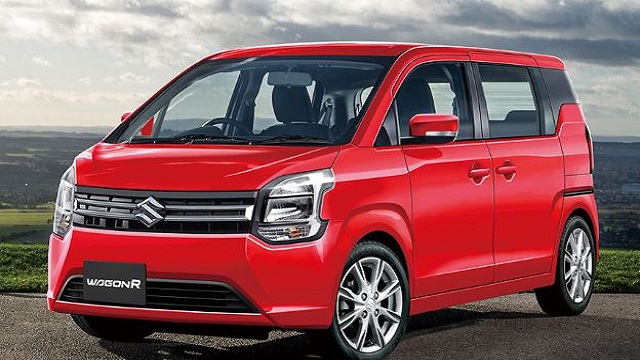New-Gen WagonR to Feature Hybrid Technology – More Mileage, Smart Upgrades

New-Gen WagonR to Feature Hybrid Technology – More Mileage, Smart Upgrades
The Maruti Suzuki WagonR has been a long-time favorite in India, known for its spacious design, fuel efficiency, and reliable performance. Now, Suzuki is preparing to introduce a new-generation WagonR with a full-hybrid powertrain, promising improved fuel economy and enhanced features.
WagonR Hybrid: Engine & Features
The upcoming WagonR hybrid will incorporate a 660cc, inline-3, DOHC petrol engine paired with an electric motor and an Auto Gear Shift (AGS) transmission. This setup, borrowed from Suzuki’s Solio, will generate 64 PS of power and 87 Nm of torque, making it an efficient and eco-friendly option.
In terms of design, the new model will replace standard rear doors with sliding doors, a feature gaining popularity in Japan’s tall-boy hatchbacks. This will provide better accessibility and cargo flexibility. Additionally, the seats will be highly customizable, allowing users to adjust them as per their needs.
The Japan-spec WagonR is expected to measure 3,395 mm in length, 1,475 mm in width, and 1,650 mm in height, with a wheelbase of 2,460 mm and an 850 kg weight. The base variant of the strong hybrid WagonR is likely to be priced at 1.3 million yen (approx. ₹7.65 lakh), while the top variant could cost 1.9 million yen (approx. ₹11.19 lakh).
Safety-wise, the new WagonR is expected to offer automatic emergency braking, lane departure warning, and adaptive cruise control. It may also feature a touchscreen infotainment system with smartphone connectivity and a digital instrument cluster.
Hybrid WagonR for India – What to Expect?
Maruti Suzuki is developing an affordable hybrid system for its smaller cars in India, including the WagonR, Swift, Dzire, and Fronx. This new system may be paired with a 1.2L, 3-cylinder petrol engine. While Maruti could adopt Toyota’s hybrid technology, cost concerns make an in-house hybrid solution more viable.
However, the government’s taxation policy plays a crucial role in hybrid adoption. While EVs attract just 5% GST and receive road tax waivers and subsidies, strong hybrid vehicles face 28% GST and additional cess, bringing the total tax burden to around 43%. Only a few states, like Uttar Pradesh, have offered tax exemptions for hybrids.
For Maruti’s hybrid strategy to succeed, nationwide policy changes and incentives are essential. The company’s decision to introduce hybrid technology in smaller cars will largely depend on government support for hybrids in India.












